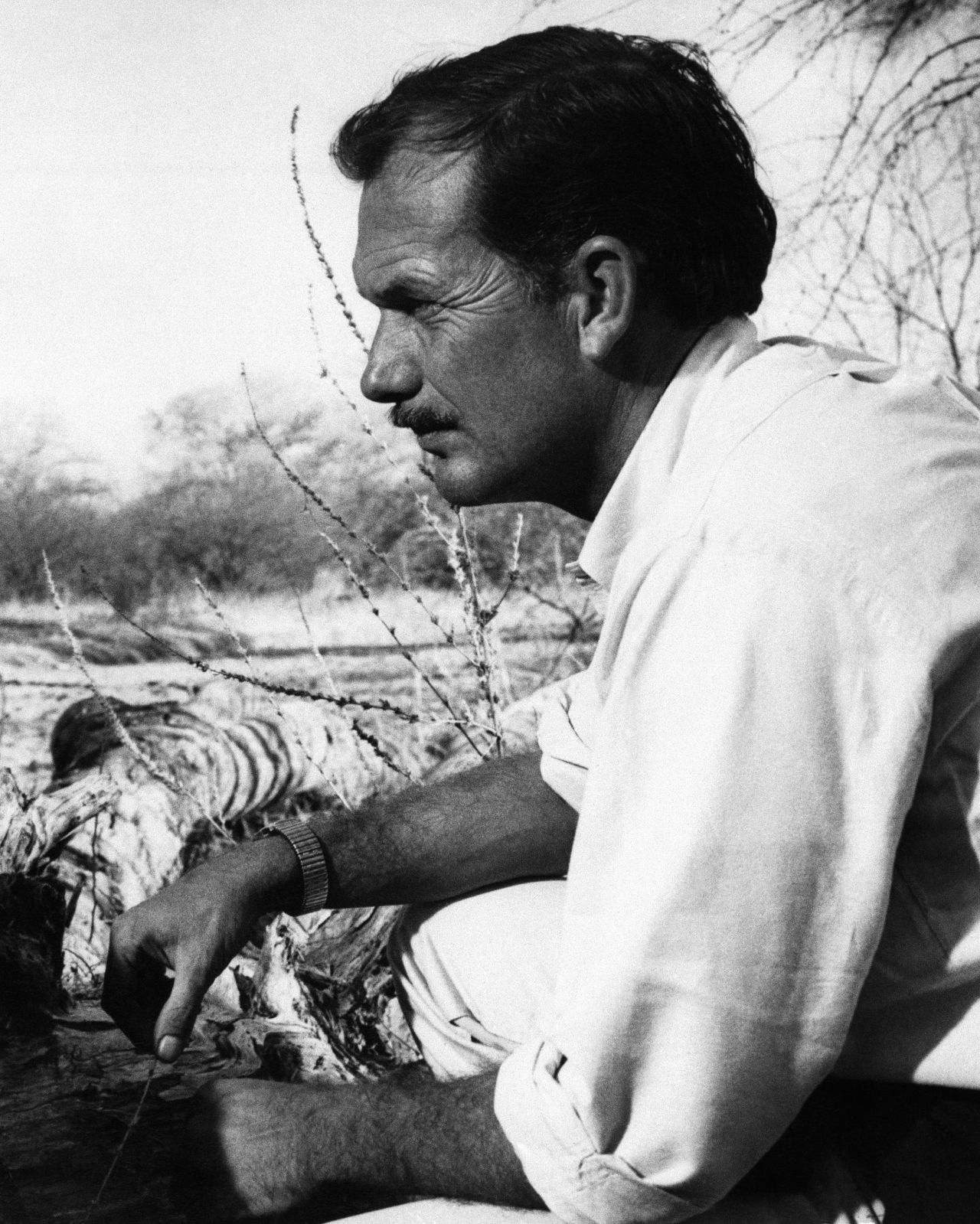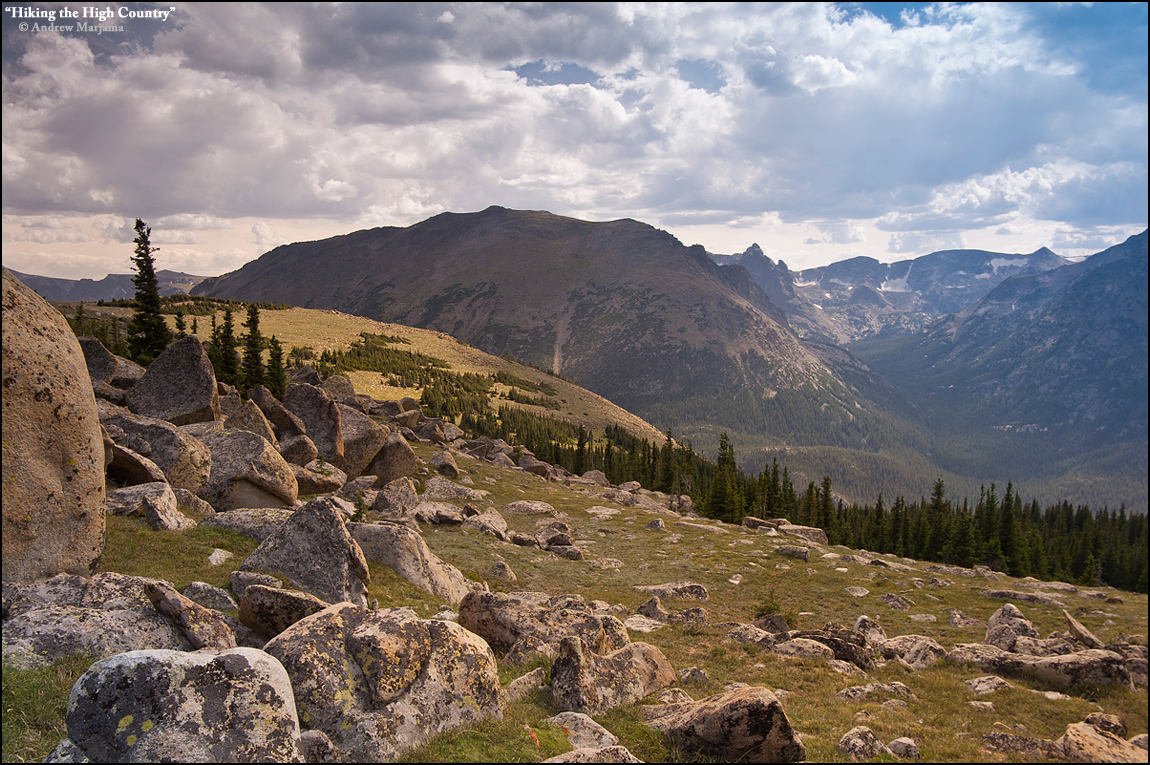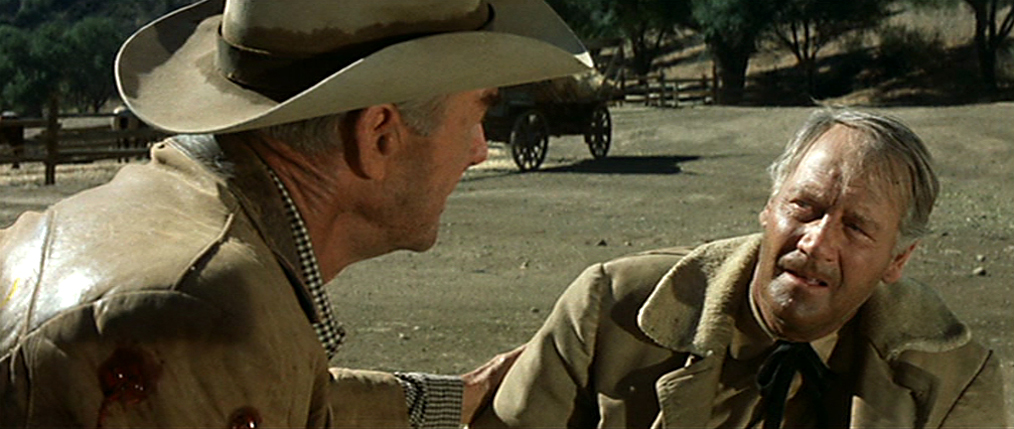One of the great westerns. It combines a young director with two of the wisest hands on the ranch. Randolph Scott and Joel McCrea between them must have been in more than a hundred and fifty oaters. McCrea made it a point only to accept roles in Westerns and Scott did virtually the same thing though less explicitly. I would like to think that they did so for the same reasons that Justin Playfair gives in ‘They Might be Giants’ for only watching western movies. See the review of this latter film elsewhere on this blog for further explanation.
 A publicity photograph.
A publicity photograph.
Two ageing lawmen find the west has changed and so have they. It is no longer in need of them. One has become a sideshow barker and the other a bar-room bouncer. Then a job comes up, one with a modest reward but it smacks of the old days and the old ways, off they go once again a team. One is losing his sight and other has arthritis but this is too good an opportunity to miss….for one of them it offers vindication and for the other one it offers something more venal.
In 1962 audiences were also changing and the Western was on the way out. Nor was there any further need in Hollywood for these two old actors in particular. The screenplay reflects their own situation, too. It becomes a story about the actors as well as the characters they embody.
The tattered McCrea remains steadfast, but the flamboyant Scott has heard a different drum, after countless brawls, wounds, ambushes, shoot outs, injuries, chases, beatings, falls, and betrayals it is time to taste the honey. With what he thinks is subtlety Scott tries to suborn McCrea who seems not to realise what is going on. Subplots add depth and as in every Peckinpah film, each character however minor has a name. Edgar Buchanan’s brief speech at the wedding, Federico Fellini could not have done better, gave me pause for thought.
 Sam Peckinpah
Sam Peckinpah
The Biblical reference to ‘entering the house justified’ is another gem.* Any close observer of Peckinpah’s films will realise, he was student of the Bible and studded his films with imagery and lines from parables, hymns, letters, psalms, and words of the prophets.
The landscape of the high country is an elegy to a cleaner, better world made foul by humanity at its worst.

Then the denouement comes. Perfect. The exchange of looks between McCrea and Scott constitute a master class in acting in a few seconds. Each man sums up his own celluloid career in a single glance.
 The end.
The end.
Then there is that last line of dialogue delivered by McCrea as his sun sets. Moving and marvellous. Redemption is even sweeter than honey.
*Luke, 18:14
Skip to content
